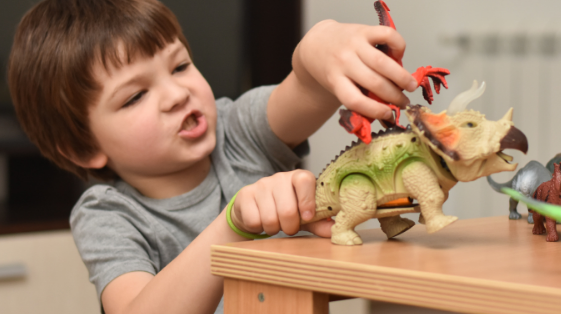When Your Kid’s Passion Becomes Yours Too
by Frank Carter
It started with dinosaurs.
One minute, my kid was happily stacking blocks, and the next, every waking hour was filled with “Did you know the velociraptor had feathers?” and demands that I attempt (and fail) to pronounce “parasaurolophus” without sounding like I was choking on a peanut. At first, I smiled politely and nodded. Then I realized something—this wasn’t going away. My child had found his thing, and suddenly, I was along for the ride.
And here’s the truth: that ride is both more exhausting and more rewarding than I ever imagined.
The Deep Dive Into Their World
When your child discovers a passion, it’s like they’ve built a secret clubhouse in their mind—and they’re inviting you in. But the price of admission is steep. You will need to learn more about trains, ballet, robotics, or ancient sea creatures than you ever thought possible. You’ll spend Saturday mornings at hobby stores, and you will have Opinions on things you didn’t know existed.
For me, this meant museum trips that used to be casual strolls now required serious study. It meant bedtime stories about dinosaurs instead of fairy tales, YouTube documentaries instead of cartoons, and a growing stack of fossil field guidebooks on my nightstand. At first, I thought I was just humoring him. But somewhere along the line, I realized I was actually enjoying it.
That’s the sneaky part—when your kid cares so deeply about something, it’s contagious.
Why It Matters
Leaning into your child’s passion isn’t just a way to keep them busy. It’s a way of telling them, I see you. I value what excites you. When you treat their interest seriously, you show them that their curiosity is worth investing in.
Research backs this up—children whose parents engage with their hobbies tend to stick with them longer, develop better problem-solving skills, and feel more confident sharing their ideas. The activity itself becomes less important than the message you’re sending: “Your joy matters to me.”
And there’s another hidden benefit. By diving in with them, you’re building shared memories that will stick long after they’ve moved on to the next big thing. Ten years from now, my son might not care about dinosaurs, but he’ll remember that his dad cared about him enough to learn every prehistoric name in the book.
Of course, there’s a line between “supportive parent” and “full-time unpaid research assistant.” At some point, your living room might start looking like a satellite location of the Natural History Museum, or you might realize you’ve spent three hours assembling a model spaceship while your child wandered off after ten minutes.
That’s okay. Passions ebb and flow, and kids sometimes need to explore without you hovering. The goal isn’t to live in their hobby—it’s to live alongside it. Supporting them doesn’t mean giving up your own interests or identity. It’s healthy for them to see you enjoying your own passions too.
And yes, sometimes their hobby will feel like a chore. Sometimes you will be tired of hearing about the same five facts on repeat. Sometimes you will wish they’d talk about literally anything else. That’s part of parenting—leaning into the joy even when it’s not your preferred flavor of fun.
The Unexpected Perks
When you step into your kid’s hobby, you open the door to experiences you might have missed. Without my son’s obsession, I probably wouldn’t have volunteered at the local science center, learned the difference between igneous and sedimentary rock, or met the surprisingly cool group of paleontology nerds who now greet us like old friends.
You also discover surprising overlaps with your own interests. I found myself appreciating the art of dinosaur illustrations, which led me back into drawing for the first time in years. A friend of mine, whose daughter is into ballet, started going to performances “just to support her”—and now she’s taking beginner adult ballet classes herself.
Our kids’ passions can stretch us in ways we didn’t expect, making us better listeners, more curious learners, and maybe even a little braver about trying new things.
When the Passion Changes
It’s inevitable—one day, they’ll move on. The dinosaurs will give way to skateboarding, the ballet shoes to soccer cleats, the robotics kit to a guitar. It can feel bittersweet, especially if you got attached to their “thing” too. But that’s part of the deal.
The point isn’t to stay in the same interest forever. The point is to show your child that whatever lights them up is worth paying attention to—and that you’re willing to meet them there. Every new hobby is just another chapter in a longer story you’re writing together.
Parenting is full of chances to connect, but hobbies are one of the easiest ways to build that bridge. They give us common ground, a shared language, and, yes, something to talk about other than chores and homework.
So if your kid loves something—really loves it—don’t just watch from the sidelines. Ask questions. Learn the lingo. Be willing to go down the rabbit hole, even if it’s filled with LEGO bricks, obscure bird facts, or endless dance recital rehearsals.
Because one day, they won’t just remember the dinosaurs or the dance steps. They’ll remember you, sitting next to them, just as fascinated as they were. And that’s a hobby worth keeping for life.
